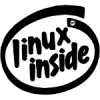If you want to try Linux. I recommend stock ubuntu 12.04 LTS if you want something basically guaranteed stable, or you have older hardware. This version also has unity 2d pre-installed, which is great for older hardware. It behaves similar to unity 3d, but its much much much faster.
If you want some of the newer web-app integration features try 12.10 32-bit as well. By now, its fairly stable, so its just whether you want the new features of 12.10 over 12.04. And the unity desktop has improved in performance a bit as well in 12.10. 12.10 does not include unity 2d by default, but i believe you can install it via the software center.
64-bit ubuntu vs 32-bit ubuntu: go 32-bit if you are new. 32-bit Linux, unlike 32-bit windows, will properly address memory ranges greater than 32-bits, so that 8GB of RAM you have, can get addressed just fine. Additionally, you will have less potential compatibility issues as more apps and drivers are written for 32-bit linux over 64-bit linux. This doesnt mean that 64-bit linux doesnt work well, its just that you should know how to go about getting multi-arch packages if you run into compat issues, and therefore isnt a wise linux newbie option.
After you're well acquainted with linux and still want to work in the ubuntu realm, go Xubuntu. Its Xfce desktop is higher performance, less resource intensive, and has compatibility with gnome and KDE based app architectures if needed. Generally, avoid mint like the plague. While i'm not a huge fan of unity, i'm not a fan of Cinnamon. I found it a bit glitchier and generally slower than default ubuntu as well, but that was my experience, yours may be different. I also havent tried MATE yet... so who knows, i may like that...
Kubuntu & Lubuntu. If you're a die hard KDE fan, Kubuntu may be your thing. I havent played with it much, but it is a different beast. If you switch to it from regular ubuntu, you'll have the need for some readjustment. Lubuntu is basically the ubuntu you get for old hardware or when you want the least resource intensive desktop possible: LXDE. Its damn fast, but you get that at a price (looks). If you have an netbook or an old desktop, this will bring it back to life guaranteed. It does what it does, and does it well. Lubuntu is also the only ubuntu i've tested in a VM, in which it never needed the special virtual drivers because it was that fast by default.
Ubuntu pretty scale (high-to-low): Kubuntu, Ubuntu, Mint, Xubuntu, Lubuntu
Ubuntu performance scale (high-to-low): Lubuntu, Xubuntu, Ubuntu, Kubuntu (source ubuntu 13.04 testing, gnome 2x was not tested so i have nothing comparable to Mint)









